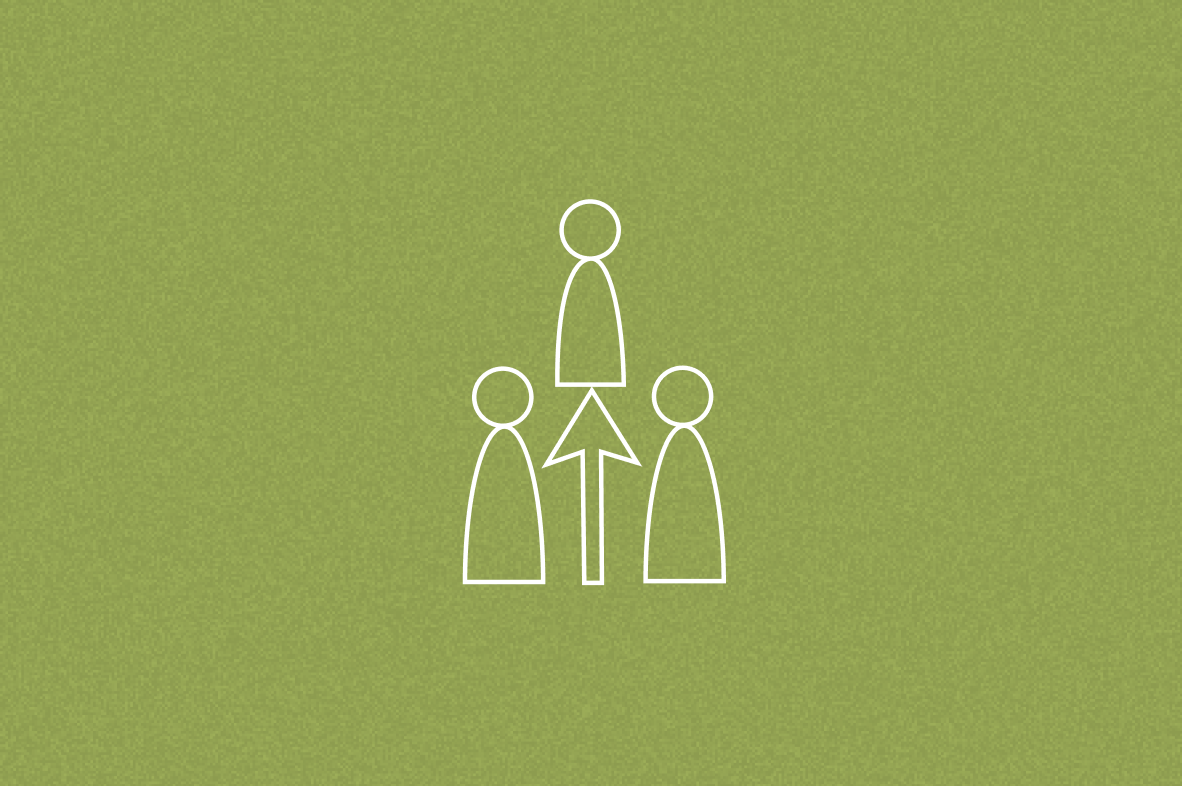Grow Your Business with Self-Compassion | Tory Burch Foundation
Grow Your Business with Self-Compassion
Or, how to kindly get out of your own way.
16,321 Views
11 Likes
5 min read
Link copied to clipboard
As an entrepreneur, you can expect to face a steady stream of obstacles throughout your journey. You shouldn’t be one of them.
Juggling administrative tasks, financial obligations, marketing campaigns and other daily responsibilities means business owners constantly have a lot on their minds. Unfortunately, negative, repetitive thoughts like “I’m not good enough” or “That was stupid” can take up valuable real estate in the brain and prevent many people from reaching their full potential.
Elizabeth Pyjov, founder of Lead with Compassion and Happiness Sangha, has worked with people at law firms, companies and nonprofit organizations to help them get out of their own way and get more done with less stress. She joined our webinar series to talk about how business owners can use self-compassion to reduce burnout and boost their bottom lines.
WHAT IS SELF-COMPASSION?
Self-compassion is a psychological framework for thinking about yourself derived from Buddhist theology that focuses on growth over perfectionism. University of Texas at Austin professor Kristin Neff popularized the concept and breaks it down into three parts:
- Self-kindness: Treating yourself with the same care and understanding that you extend to loved ones.
- Mindfulness: Acknowledging your thoughts and feelings don’t always reflect the person you are or the reality we live in.
- Common humanity: Recognizing that being imperfect is part of the shared human experience.
Practicing self-compassion is linked to increased resilience and improved mental health. Entrepreneurs who embrace self-compassion are more likely to learn from experiences, recover from setbacks and ultimately make better decisions for themselves and their business, Pyjov said. She turned to self-compassion work after facing burnout in the high-pressure worlds of academia and white-shoe law firms.
“There’s really nothing that’s brought me more inner lightness and inner freedom and confidence,” she said.
MEET YOUR INNER CRITIC.
The first step of practicing self-compassion is identifying your inner critic so you can learn to dismiss it.
The inner critic is a relentless companion that often whispers self-doubt and fear of failure into our ears. The impact of this inner voice can be particularly pronounced for women entrepreneurs. Research confirms that women tend to have more negative thought patterns than men. This nagging voice speaks from a place of fear and has been a part of the human experience since the caveman days when it helped with self-preservation, Pyjov said.
In today’s world, however, this instinct often does more to hold us back than keep us safe. Multiple studies have proven that self-criticism is unproductive. It sends the brain into a protective state, leading to decreased motivation.
“It’s the voice that makes you procrastinate, and it’s the voice that makes you feel like you’re not enough no matter what happens,” Pyjov said.
The first step to conquering this inner adversary is recognizing that it’s not objective, and its demands are fundamentally unreasonable.
“What the inner critic wants from you is something that is not actually in the human realm,” Pyjov said.
Learning to dismiss these thoughts when they pop into your head helps entrepreneurs approach decision-making with a clearer and more rational mindset.
“It’s a voice that I can rewrite, and we can all rewrite.”
TAKE BACK YOUR BRAIN WITH MINDFULNESS.
Of course, changing your thought patterns is easier said than done. Humans have little control over the more than 6,000 thoughts that cross our minds each day. Some will inevitably be negative and unhelpful.
Incorporating meditation into your routine is one way to practice acknowledging and dismissing thoughts so you can focus on the bigger picture. Meditation is a great way to refocus on your intentions and dedicate time to practicing being kinder to themselves. Consider starting with Neff’s short self-compassion meditations. Completing just 11 hours of meditation over a 1-month period is enough to strengthen the connections between different parts of the brain to improve emotional regulation and decision making. Scientists can see a measurable difference in your brain after meditation, Pyjov said.
As an entrepreneur herself, Pyjov knows it can be hard to incorporate new routines into the already busy life of a business owner. Still, she recommends committing to at least 2 minutes of self-compassion meditation to start your day before scrolling through social media or checking emails on your phone.
If you are too busy to meditate, she suggests practicing mindfulness throughout the day by reminding yourself how each of your actions connects to your broader goals, even while doing the most menial tasks. For example, answer emails not because you have to, but because you believe in the work you are doing.
“If you’re doing something because of your inner critic, it will always be out of fear, and it’ll always be not enough,” Pyjov said. “If you’re doing it out of self-compassion, you can have that satisfaction.”
THE BUSINESS CASE FOR SELF-COMPASSION.
Being kinder to yourself also makes you a better leader. Self-compassionate managers are more likely to foster a positive work culture, where team members feel supported rather than fearful of failure.
“How you speak about yourself is going to be the culture you create,” Pyjov said. “Be very careful about how you speak to others, because how you speak to them is going to become part of their critical voice.”
By cultivating a compassionate mindset towards oneself, leaders are more likely to extend the same empathy to their employees, which can boost morale and productivity. De-emphasizing criticism in the workplace not only boosts morale and productivity, but it also increases creativity and innovation, meaning your company’s next big idea could be a kind word away.
Help an entrepreneur by upvoting



